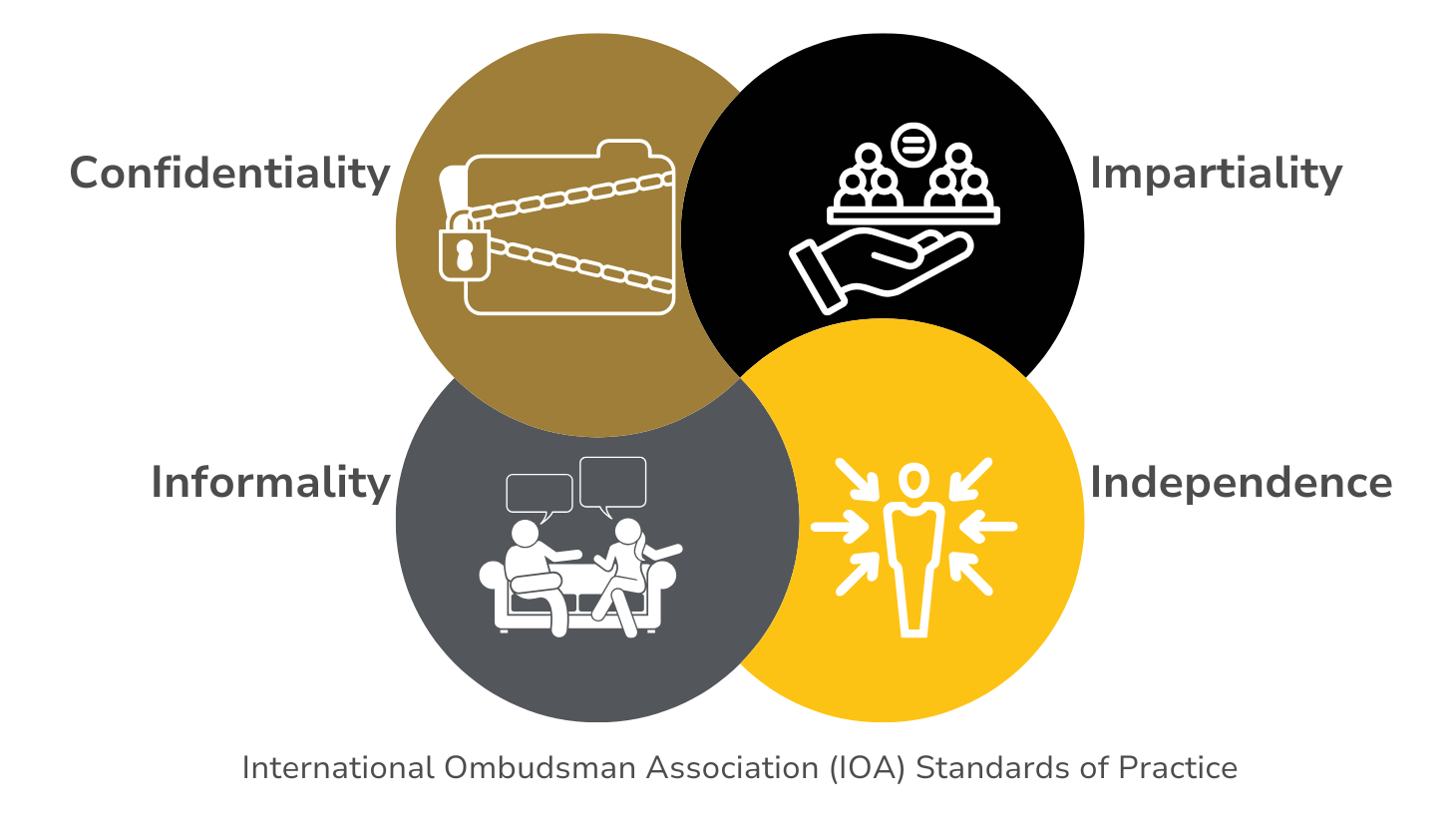About Us
What is an Ombuds?
At times, navigating workplace challenges can feel overwhelming. Whether you’re facing a complex situation, a difficult decision, or an unresolved conflict, the Wake Forest University Ombuds serves as a confidential, impartial, and informal resource to help you explore your options and determine next steps.
The Ombuds Office provides a neutral space where faculty, staff, and administrators can speak in confidence about concerns related to their work at Wake Forest. Acting as a co-navigator, the Ombuds listens, clarifies issues, and helps identify potential paths forward—empowering you to make informed decisions.
Our Mission

The Wake Forest Ombuds Office operates in accordance with the International Ombuds Association (IOA) Standards of Practice, guided by four core principles:
Confidentiality
All conversations with the Ombuds are strictly confidential, except in cases where there is an imminent risk of serious harm. This commitment allows you to speak openly and explore your concerns without fear of disclosure.
Informality
The Ombuds provides an off-the-record space and does not replace formal university procedures. Speaking with the Ombuds is voluntary and is not a required step in any grievance process. Instead, the Ombuds helps you explore options and develop strategies to navigate challenges effectively.
Impartiality
The Ombuds remains neutral and objective, ensuring fairness in all interactions. While the Ombuds does not take sides or advocate for any individual, they do advocate for fairness, equity, and systemic improvements.
Independence
The Ombuds operates independently from all other university departments and offices, ensuring freedom from conflicts of interest and allowing for truly impartial guidance.
How the Ombuds Can Help
The Ombuds provides guidance and support by:
- Listening to concerns in a confidential setting
- Clarifying issues and helping you explore possible solutions
- Explaining university policies and processes
- Offering conflict resolution strategies
- Serving as a neutral facilitator in discussions
- Providing referrals to other university resources
What the Ombuds Does Not Do
The Ombuds is an informal resource and does not:
- Conduct formal investigations
- Make or overturn decisions
- Alter university policies
- Offer legal advice
- Provide psychological counseling
- Advocate for individuals or groups in disputes
- Participate in formal grievance, hearing, or legal proceedings (except when required by law)
If you’re unsure whether the Ombuds can assist with your situation, we encourage you to reach out. Our office is here to listen, support, and help you navigate challenges with confidence.
Who Can Use the Ombuds Office?
The services of the Wake Forest Ombuds Office are available to:
- Full-time and part-time faculty
- Full-time and part-time staff
- Administrators
The Ombuds is a resource for workplace concerns and does not serve students or external individuals.
CONTACT US
General Inquiries
- Jill Crainshaw
- crainsjy@wfu.edu
Private & Confidential Inquiries
- 336.972.9182
In the interest of confidentiality, it is best not to share details through email about your reasons for wanting to meet.
